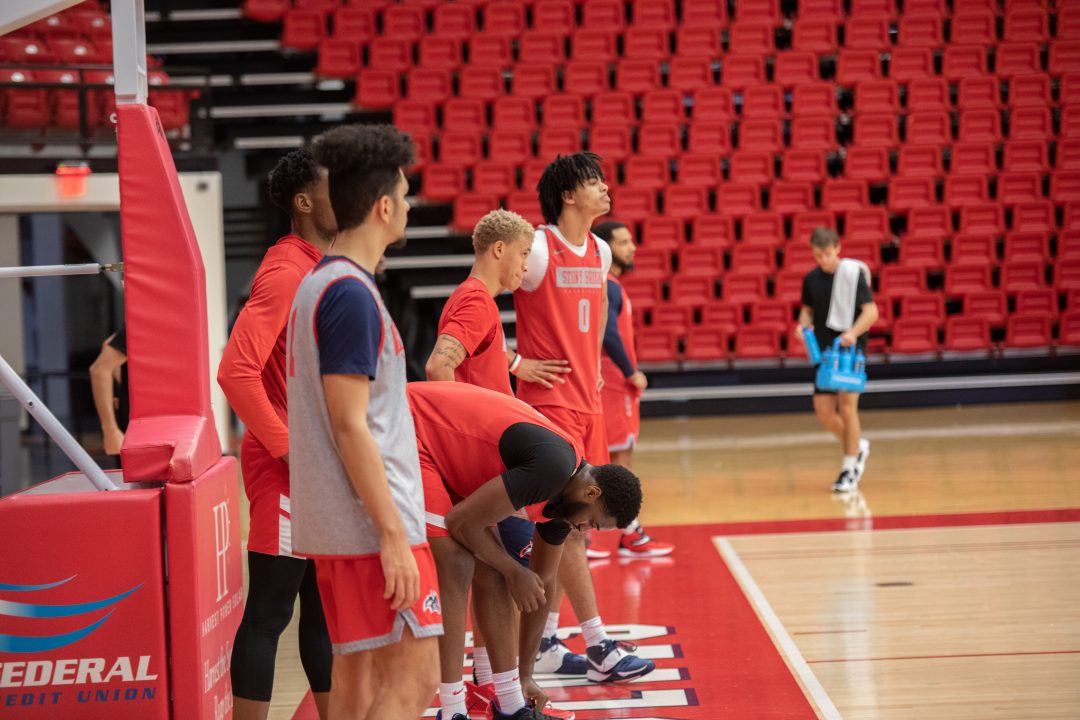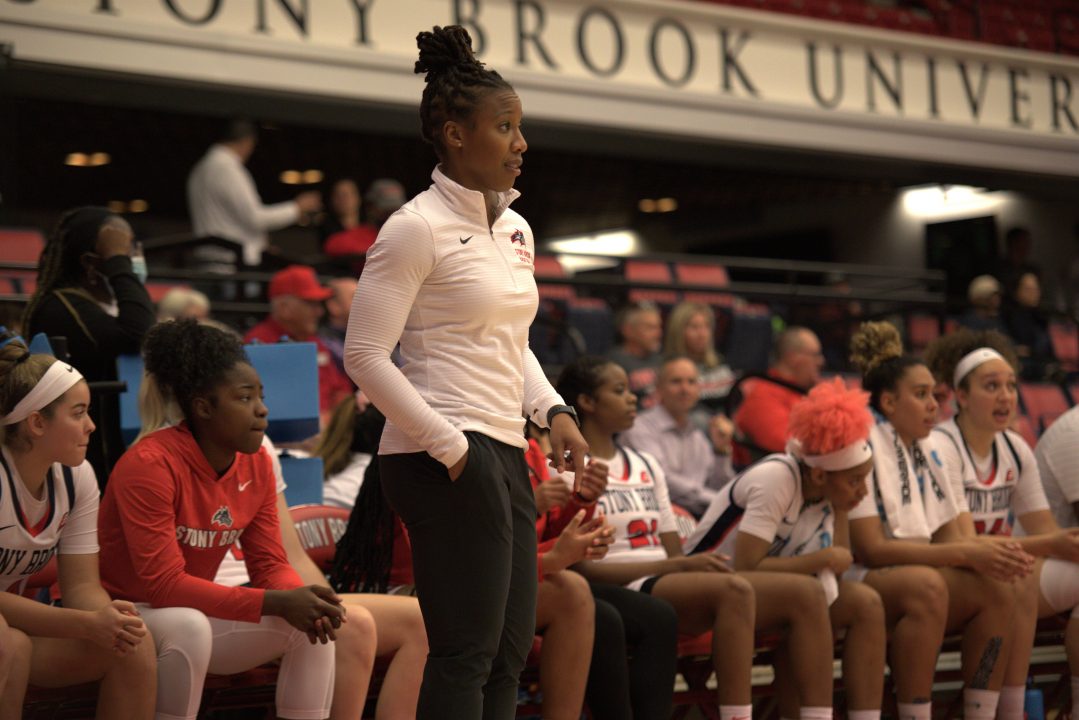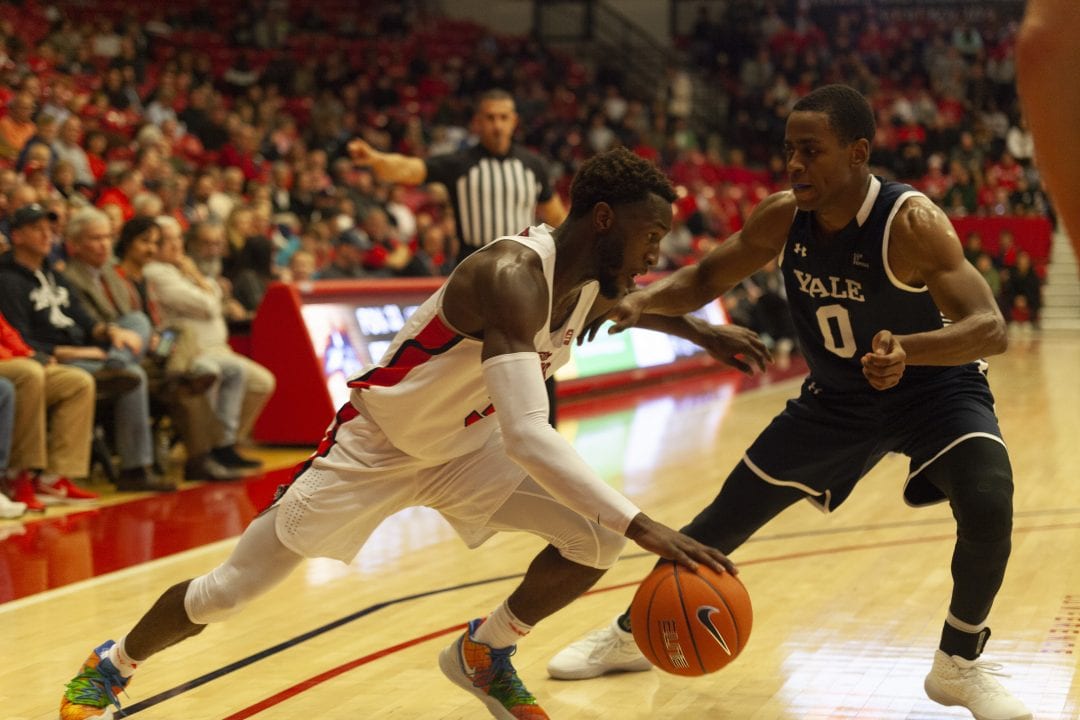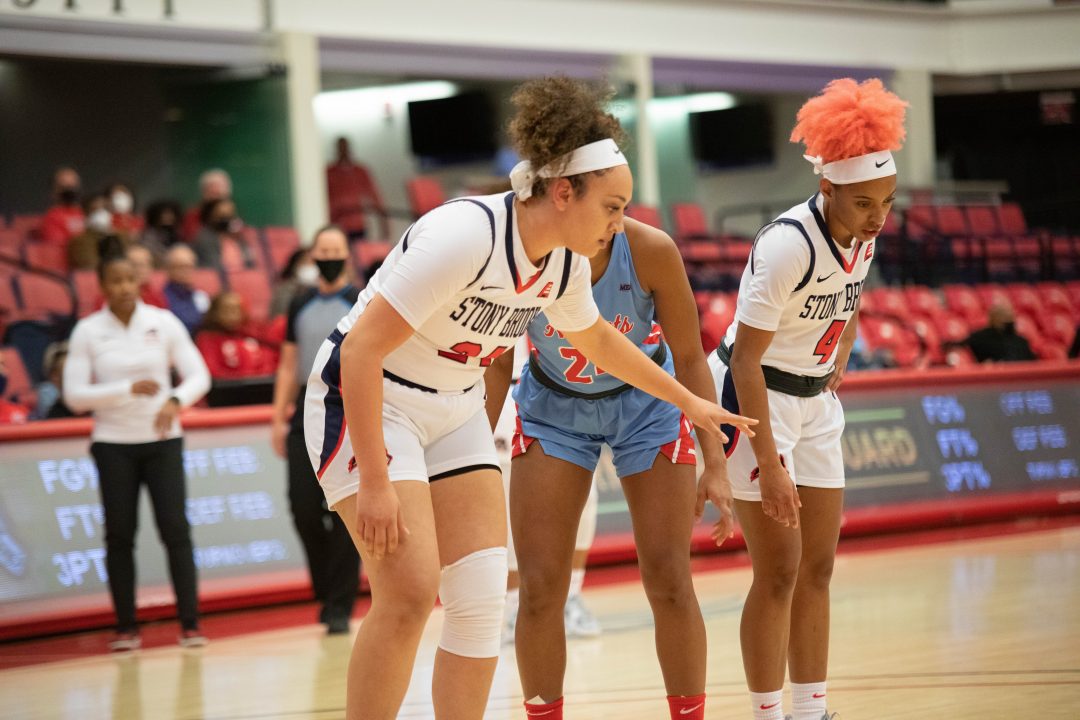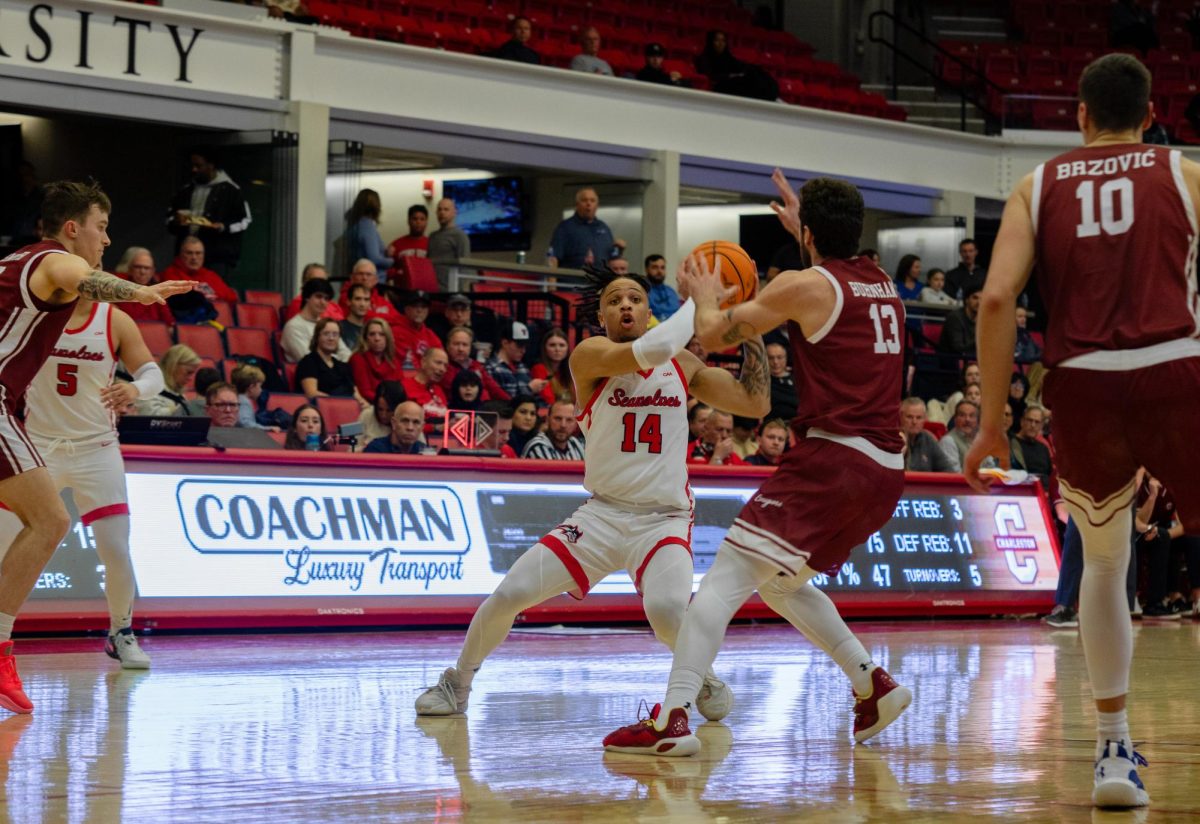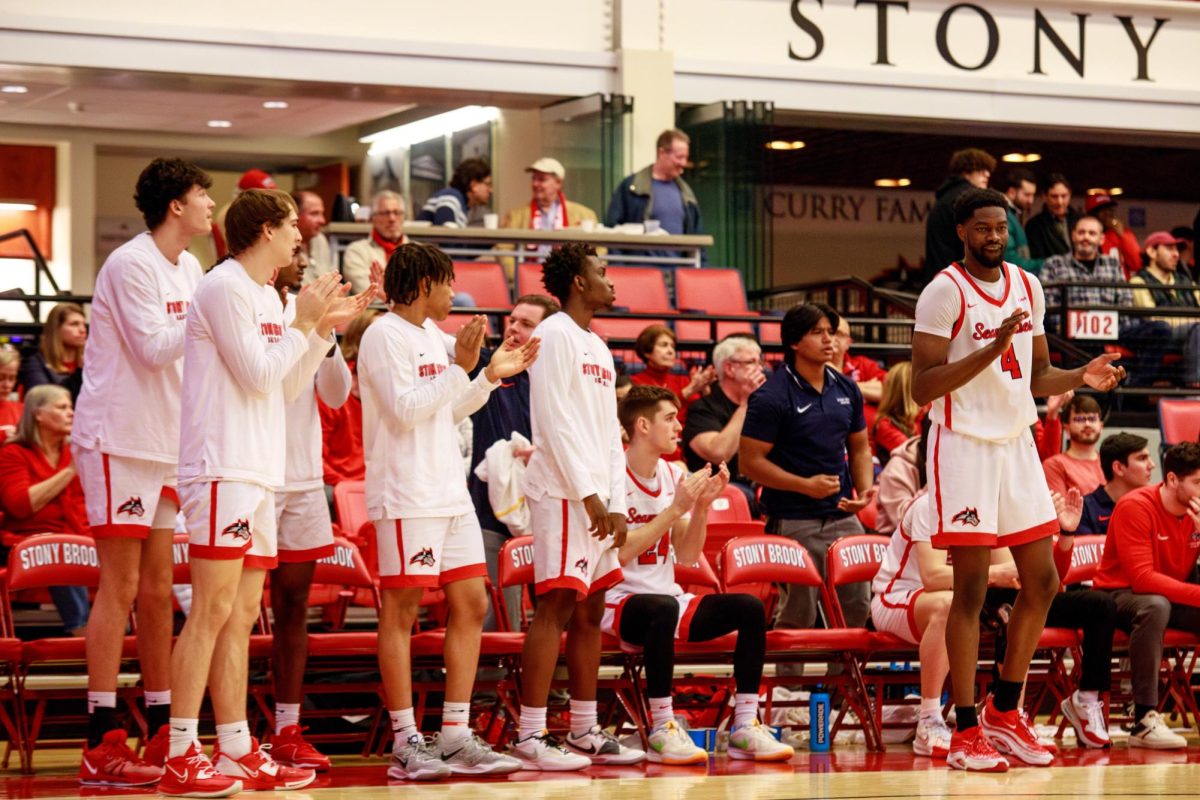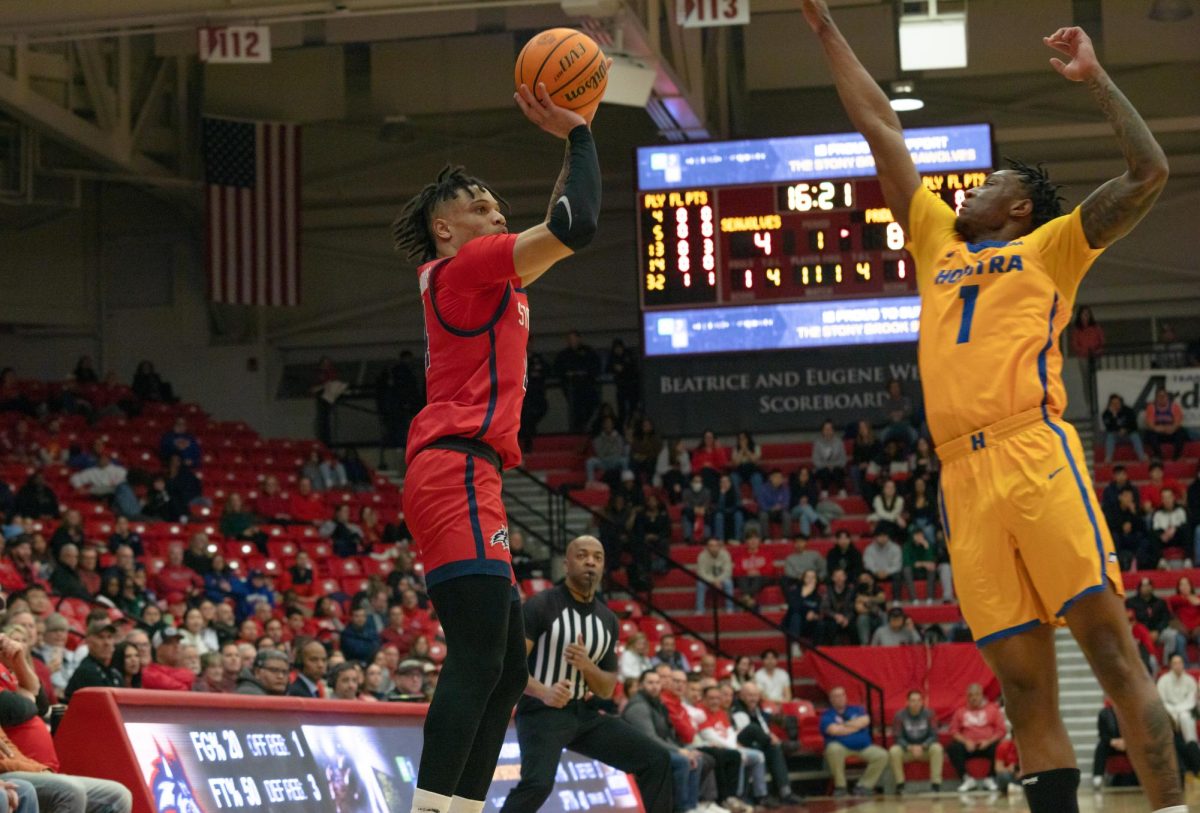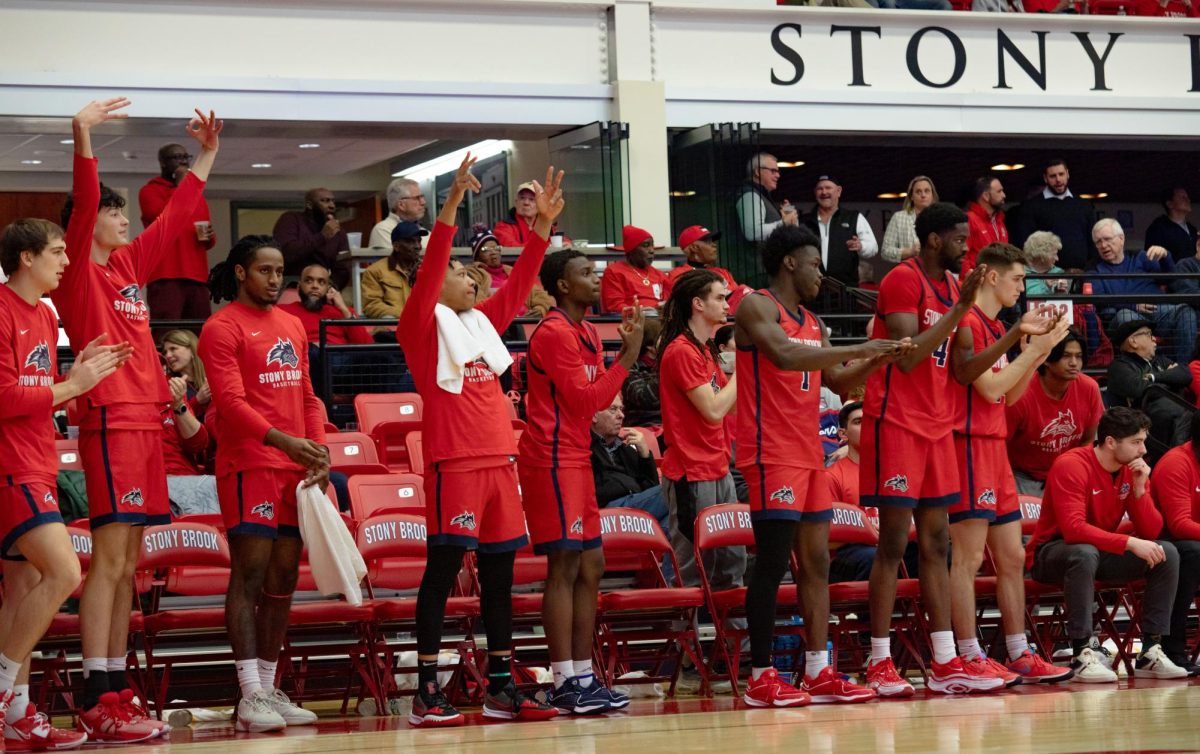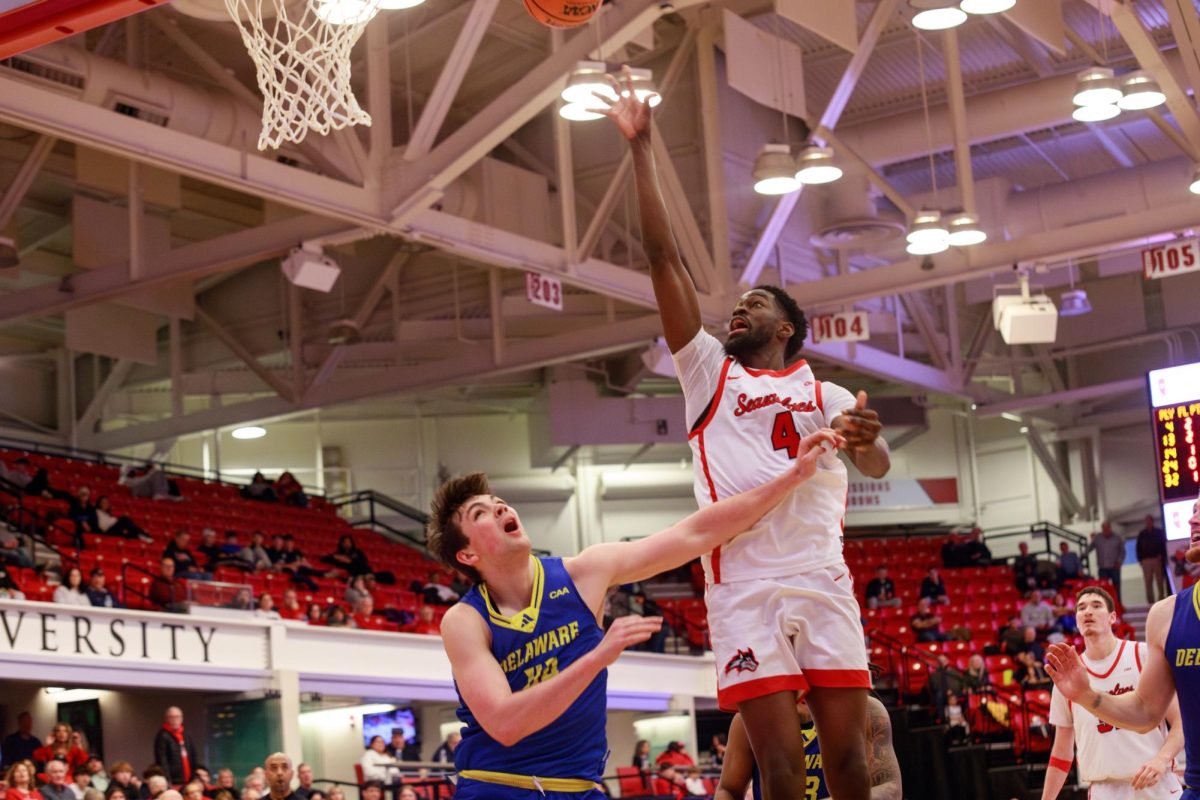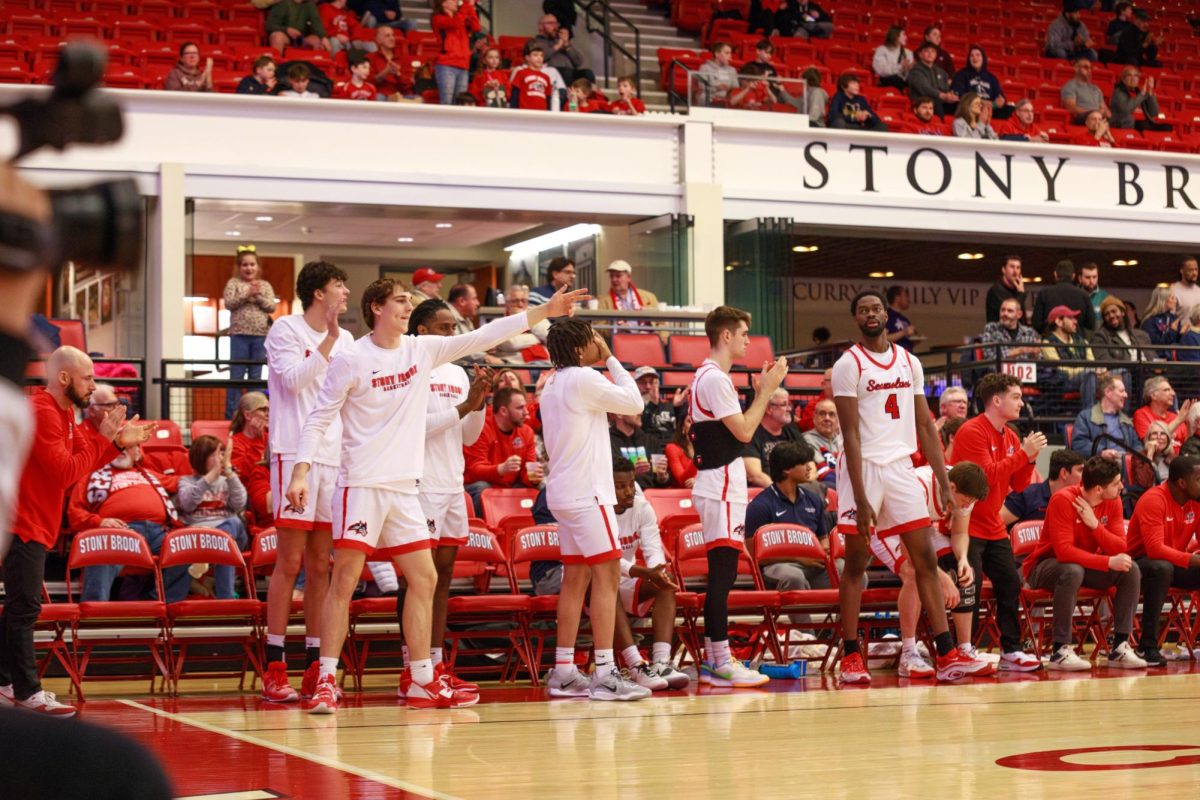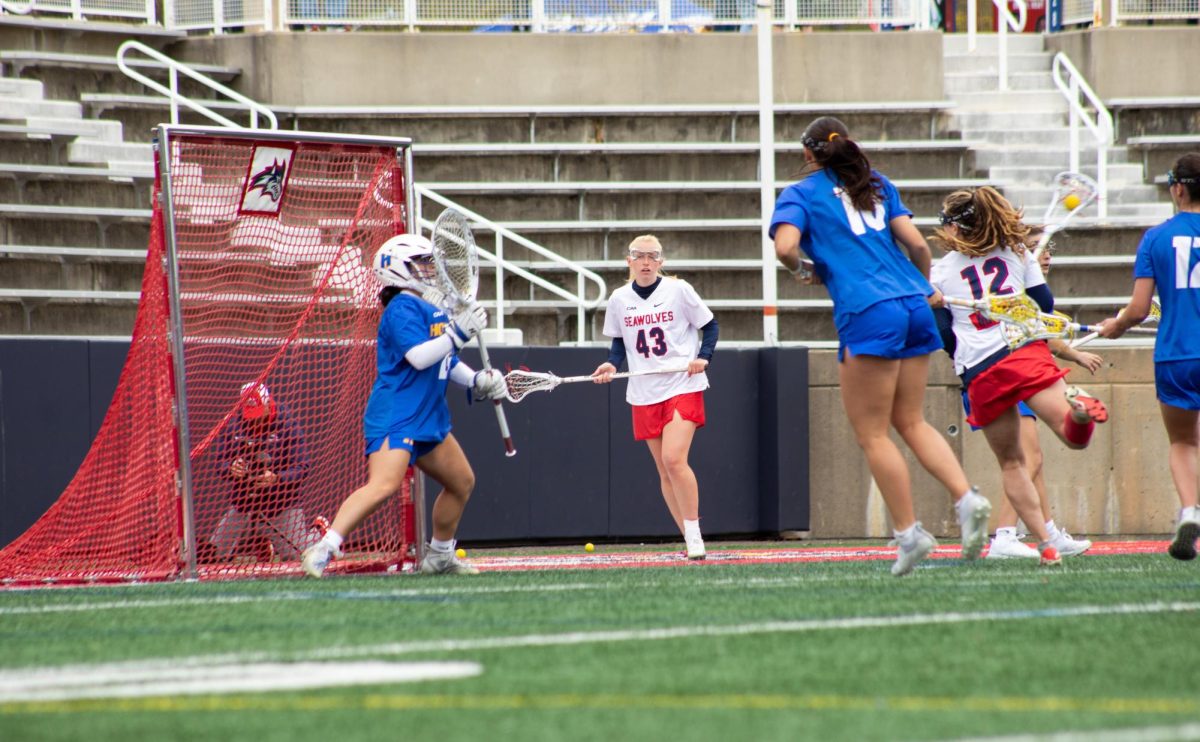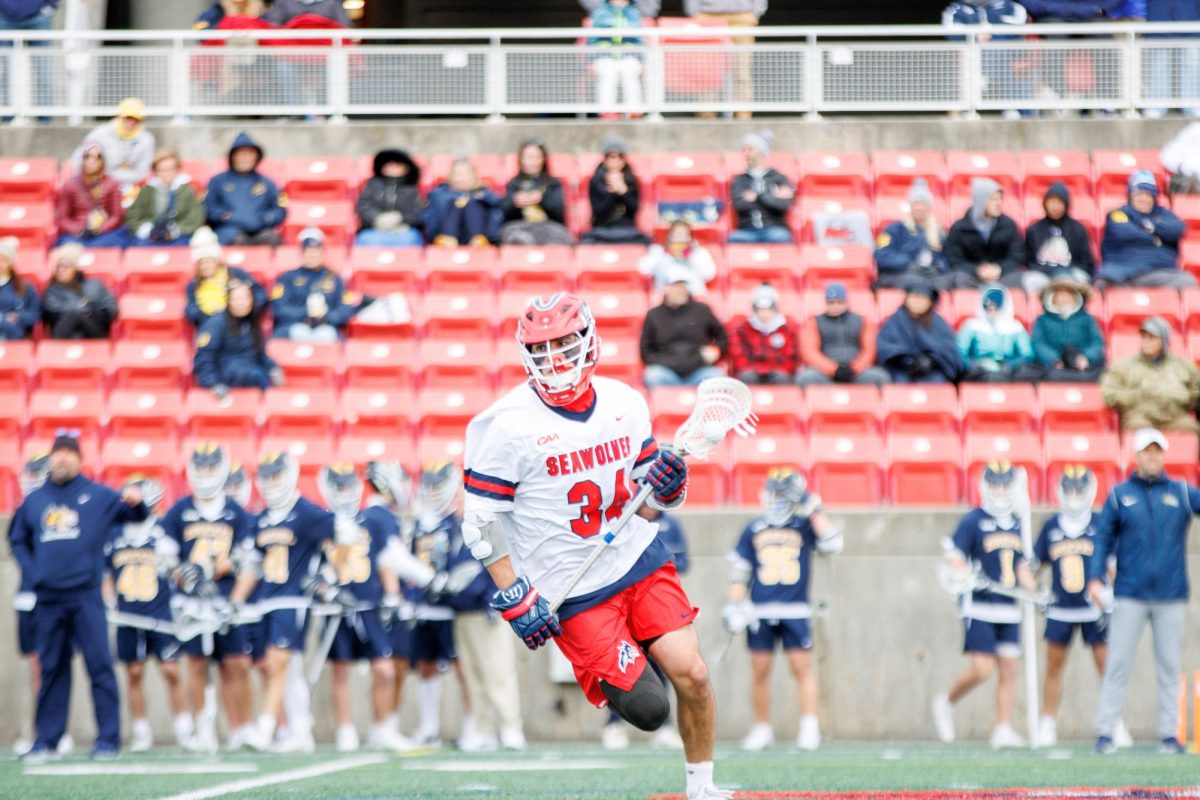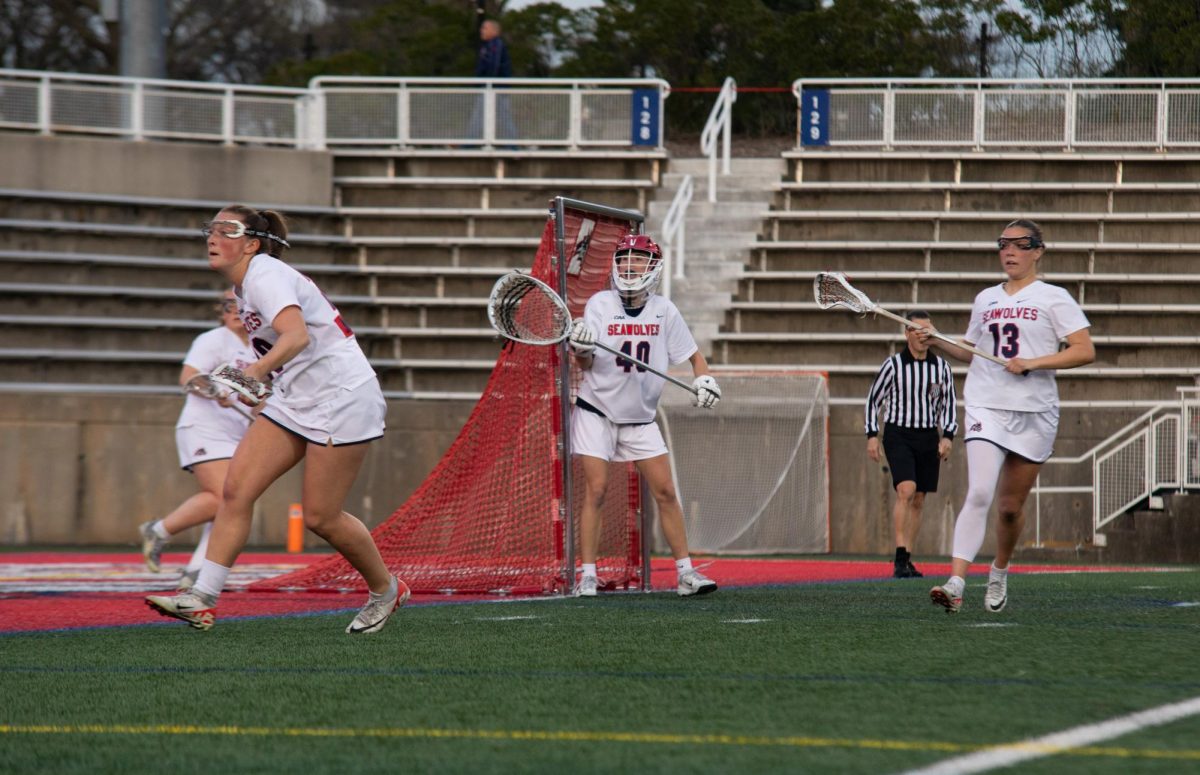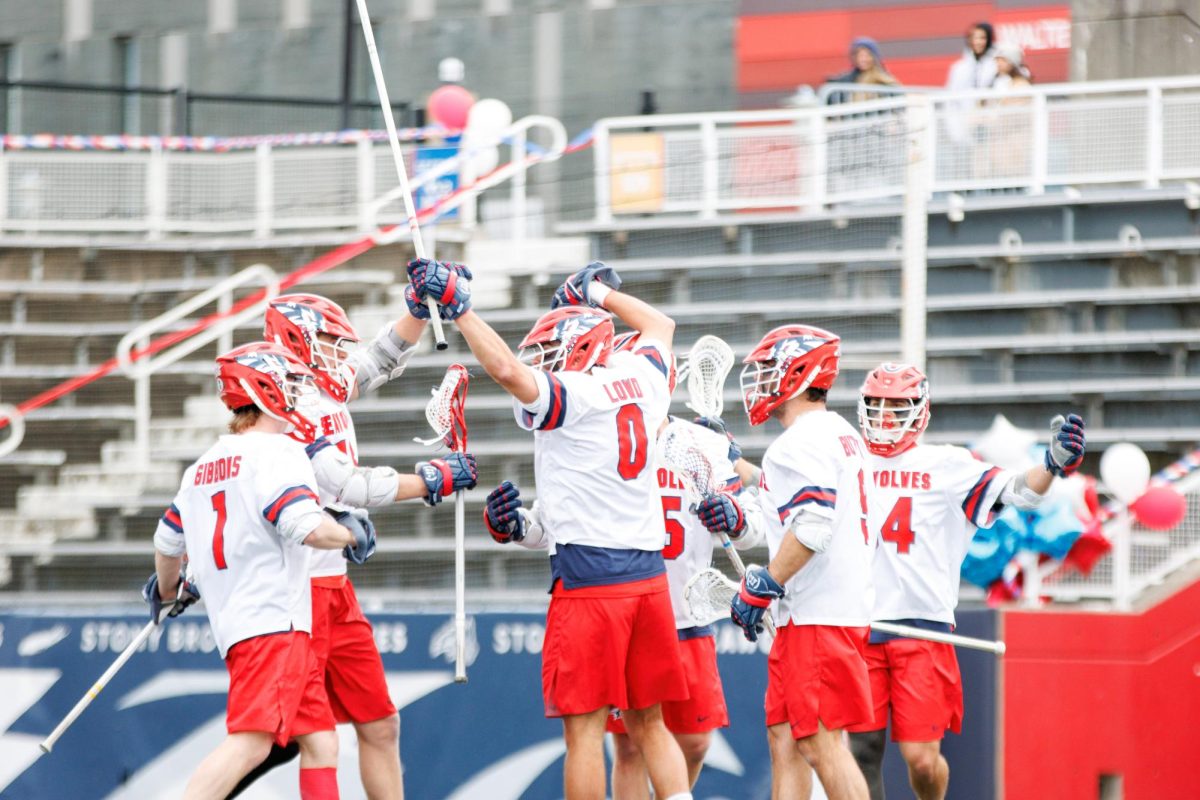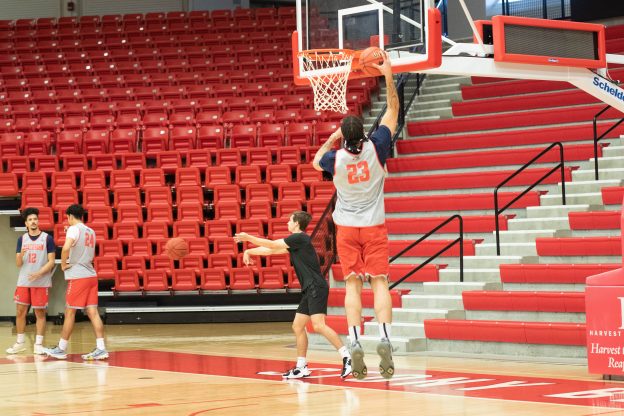
It’s make or break time in Seawolves Country.
In head coach Geno Ford’s third season at the helm of the Stony Brook men’s basketball team, the expectations have never been higher. Following the program’s worst finish in 13 years, Ford immediately washed the bitter taste out of his mouth by arming the Seawolves with a flashy transfer class that gained national attention.
The acquisitions single-handedly turned a team that finished under .500 and seventh in the America East last year into one that was projected to finish in first by the conference’s annual preseason poll. It was the first time since 2015 that Vermont was not picked as the preseason favorite. Stony Brook earned the honor that year and made its first trip to the NCAA Tournament that following March.
“We do have the most offensive individual talent we’ve ever had,” Ford said in an interview with The Statesman. “We’ve got some guys that can really score and can make their own plays, which is great. Now, to win, you’ve got to be a great team offense, not a great individual offense. So it’s gonna take us a little while to learn what we’re doing. And hopefully, through the non-conference, we can figure out how to play together.”
Stony Brook was dealt a tough hand before the 2020-21 campaign when the entire starting five from the season prior abruptly transferred out. While a few of those players saw reduced court time as the year went on and wound up at other mid-major schools, the top three scorers from the 2019-20 team landed in power conferences and became solid contributors at that level. Ford scrambled to replace that production at the last minute with several junior college transfers, some of whom lasted only one season in Division I before dropping down.
Graduate guard Elijah Olaniyi was one of the original defectors, leaving for the Miami Hurricanes and the Atlantic Coast Conference (ACC) after spending his first three seasons with Stony Brook. When he was last seen on Long Island, Olaniyi averaged 18.0 points per game and was named first-team All-Conference as a junior, making his way up to eighth on the Seawolves’ all-time Division I scoring list with 1,135 points. In his one season in the ACC, Olaniyi started 18 of 21 contests, averaging 10.5 points and 5.1 rebounds per game.
His decision to return to Stony Brook in April set off a domino effect that helped the team land other star transfers. Looking to pick up where he left off, Olaniyi was named to the America East’s Preseason All-Conference team.
“We have a lot of characters on this team, a lot of personalities,” Olaniyi said. “It’s definitely good fun to be around. If we had a camera following us, we’d be reality TV.”
Graduate guard Jahlil Jenkins from Fairleigh Dickinson brings four years of starting point guard experience. Jenkins’ skill set includes scoring at all levels — he averaged over double digits in all four seasons, including over 16 points per game, nearly 40% shooting from 3-point range and over 82% at the free-throw line in each of the last two years.
“[My biggest strength is] my playmaking ability,” Jenkins said. “I can drive, shoot, I can make one-on-one plays, I can dime. My goal personally is to be better on on-ball defense and just keep getting in the passing lanes and get steals.”
Redshirt-junior guard Anthony Roberts, who averaged double digits in his sophomore year at Kent State before leaving to St. Bonaventure and now Stony Brook, offers strong distributing skills as well. Junior college (JUCO) transfer Tanahj Pettway, a redshirt-sophomore guard, rounds out the wave from Indian River.
Last year’s squad struggled mightily on offense. In conference play, the Seawolves ranked near the bottom of multiple statistics — second-worst points per game (64.5), second-worst field goal percentage (40.1%) and most crucially, dead last in three-point shooting percentage (28.4%). The team started America East play hot by winning the first four conference games only to see a three-week pause after a player tested positive for COVID-19. When play resumed, Stony Brook lost 10 of its 13 final contests and blew a 16-point lead to UMass Lowell in the first round of the conference playoffs to end its season.
“The only reason why we were 10th in the league in shooting last year is that the league didn’t expand to 11,” Ford quipped. “When you add Anthony, who has been a very, very good three-point and free throw shooter, you add Elijah, who shot 37% from three and is an [80% plus] free throw shooter, you add Jahlil Jenkins, who will threaten 90% from the foul line and 40% from three, you just see a lot more shots go in.”
The Seawolves’ offensive leader last season was redshirt-junior guard Juan Felix Rodriguez, making the jump from the JUCO level with 13.3 points per game and a 35.5% 3-point percentage. He started all 23 games at point guard, but the acquisition of Jenkins will cause a changing role for last year’s top scorer.
“If you’re honest about last year’s team, we had two guys that could dribble that played significant minutes,” Ford said. “So Juan ended up with the ball in his hands constantly having to beat pressure and make plays for everyone. And, oh, by the way, we needed him to score 20 if we were going to have a chance to win. And he was also our best perimeter defender by a mile, so he also guarded the other team’s best player. Juan’s amount of responsibility last year was beyond what any one player should be asked to do, especially a first-year guy.”
The Seawolves will depend on Rodriguez more as a distributor this season. Ford has stated that he will not use a constant starting five and instead will give seven players “starter-level minutes.”
The departure of last year’s reigning America East Defensive Player of the Year, Mouhamadou Gueye, leaves the Seawolves much smaller inside than the team has been used to. The 6’9″ Gueye averaged 9.7 points, 7.1 rebounds and 3.1 blocks per game but transferred to Pittsburgh, continuing the trend of Stony Brook standouts moving to the ACC. Senior forward Jaden Sayles started as the team’s center.
“Our defensive plan for this year with what we have will be good against teams with size,” Sayles said. “All we’ve got to do is worry about boxing out, and I’ll do my job playing the biggest guys. We just got to get rebounds. That’s our biggest key.”
Sayles is recovering from a broken finger but played in the season opener against George Mason.
Ford envisions the team’s speed as its greatest defensive strength without Defensive Player of the Year-winning rim protectors like Gueye and Jeff Otchere on the roster as in years past.
“This is the fastest team we’ve had,” he said. “We don’t have shot blocking, but we do have speed. We can really close out and play guys one-on-one and get them shut down and under control. We’ll be a lot more aggressive on the perimeter to go for steals. If they shoot it quick and we can race it back down the other end, that’s not a bad thing for our team, the way we’re built.”
Still, Ford acknowledges the Seawolves are unlikely to continue being one of the conference’s best in points allowed per game. To counter that, his goal is for the team to score at least 80, night in and night out.
“To do that, we’re going to have to make a lot of threes,” he said. “In the past, we’ve really not had a choice but to grind out possessions and we won that way. But we all know, would you rather watch a game 62-56 or 82-76? The 82-76 games are a lot more exciting for fans, as long as we have more points.”
In one of Stony Brook’s preseason scrimmages, the team made 18 threes. Its single-game season-high last year was nine.
No one doubts the level of individual performance that players on this Stony Brook team are capable of. Even with the preseason crown, however, it is yet to be seen if all the star power the Seawolves have gained will play well together in order to carry the program to its first NCAA Tournament berth since 2016.
“How quickly we’re going to get there is how well we can block out external noise, because there are some guys that have scored 20 in a college game,” Ford said. “Well, there’s going to be a game where one of those guys at halftime is going to have gotten two shots. Where’s your head at? Are you focused on the fact that we’re up four or down four, or is your head on the fact that I only got two shots?”
These Seawolves will need to be unselfish, team-first players in order to reach their sky-high potential. With its star-studded weapons and starter-level depth, Stony Brook can be a nationally dangerous team come March if everything clicks properly.







